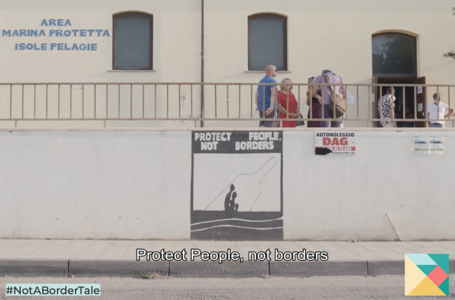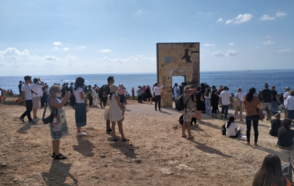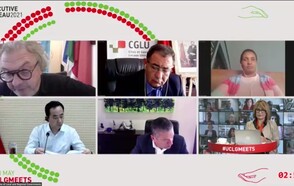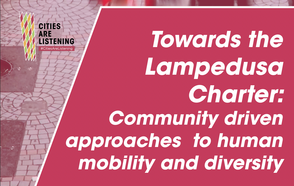
Inspired by the experiences of the island of Lampedusa, this political document is a call for a new understanding of human mobility and for increased competences and capacities for local governments to play a role in dignified management of migration.
International organizations and researchers agree that migration and displacement are increasingly an urban phenomenon. For the past decades, the municipalist movement has been defending a transition from a vision of migration and displacement that focuses on border-management and administrative status, towards a people-centered vision that addresses all communities as neighbours. As the closest level of government to the people, cities and region have been cooperating for more than a century to demonstrate that this shift can only happen through solidarity and responsibility sharing within and among territories. In the midst of a polarized world were discrimination and distorted narratives exacerbate inequalities and trigger social tensions, local and regional governments take a step forward to remind to the global community that human mobility is a natural phenomenon and a source of opportunity when managed with solidarity and care at the center.
As part of the UCLG Pact for the Future, the Lampedusa Charter will be formally launched next Tuesday, 11 October at UCLG World Congress in Daejeon. The Charter is the result of a participatory process towards a joint call to uphold dignity, care, human rights, universality, participation and diversity as the solid basis for a fair and effective governance of human mobility at all levels, striving towards more equitable cities for all, regardless of administrative status. The governing bodies of the network will adopt the Charter on Friday, 14th October.
Since its approval at the 2021 UCLG World Council in Gwangju, the Lampedusa process endorsed, renewed and expanded these commitments through two years of consultations with 300 municipalities and regions from all over the world, along with around 20 civil society and international organizations, with the support of 15 networks and the UCLG regional sections.
Arching beyond leadership commitment, the Charter proposes an action plan to implement the set of 35 thematic priorities that stem from its 7 driving principles Dignity, Equity, Recognition, Participation, Community, Solidarity and Resilience to address territorial realities and to guarantee the Right to the City for All.













